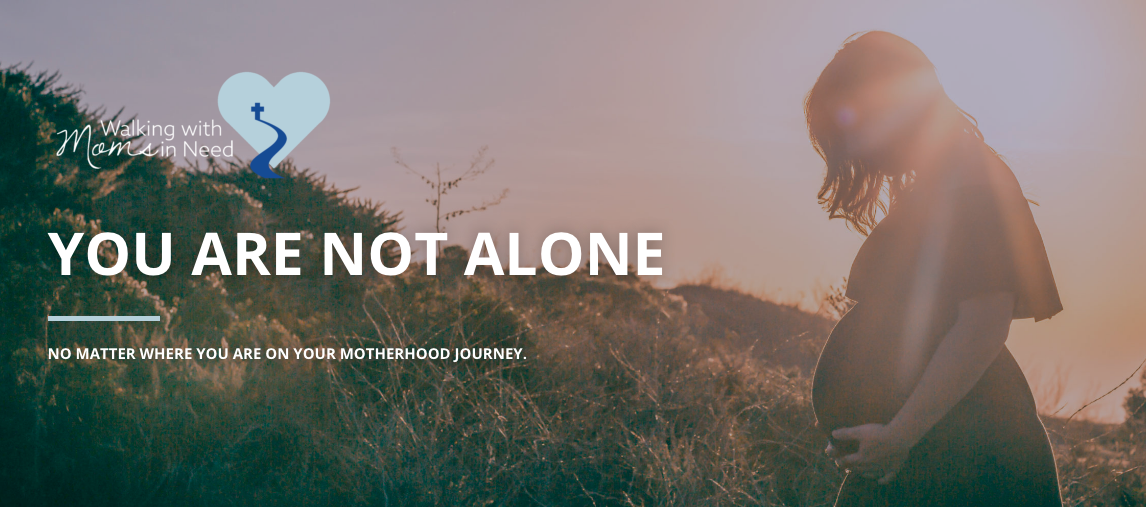January 11, 2022 // Diocese
Giving women and men the power to choose life
“Human life must be respected and protected absolutely from the moment of conception.”
So begin paragraphs 2270-2275 of the Catechism of the Catholic Church, the compendium of doctrine with which Catholics are familiar. Yet somehow, long ago, protecting the beginning of life came to be seen by much of society not as an obligation, but as a choice.
In 2022 in a culture focused on empowering women, does “empowerment” mean giving women the right to take the life of their unborn child, or does it mean providing them with the means to support themselves and their babies?
Supporting a very young life is too much of a challenge, often, for women who lack the support of a husband or a community of family and friends, who struggle financially, who have an impermanent or dangerous place to live or who are struggling with addiction and patterns of negative behavior.
At the time of the Supreme Court decision Roe v. Wade, Catholic Charities offered the primary pro-life options for women facing an unexpected or crisis pregnancy: confidential residential care and adoption.
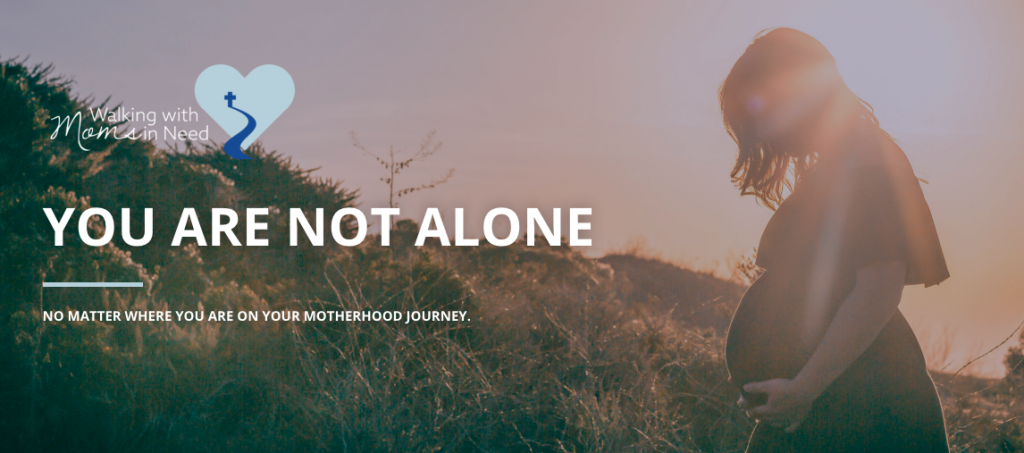
Today’s Catholic file photos
Accompanying mothers-to-be who are in need of friendship and support is the responsibility of all the faithful. That’s the foundation of a 2020 initiative launched by the U.S. Conference of Catholic Bishops and now being implemented in parishes of the Diocese of Fort Wayne-South Bend; that all Catholics should know about the resources available and be able to assist and direct those in need. Visit walkingwithmomsfwsb.com.
According to Lisa Everett, director of Marriage and Family Ministry for the Diocese of Fort Wayne-South Bend, the number of local mechanisms to support mothers has grown dramatically in the five decades since then. And as the Supreme Court case Dobbs vs. Jackson Women’s Health Organization, with its potential to unleash a storm of limitations on access to abortion, is considered, hope has reignited that pro-life organizations like these will see an increase in their lifesaving work.
At the forefront
Three organizations in particular empower area women to choose life for their children: Women’s Care Center, Right to Life Michiana (formerly St. Joseph County Right to Life) and Right to Life of Northeast Indiana (formerly Allen County Right to Life). Additionally, residential care centers Hannah’s House in South Bend and A Mother’s Hope in Fort Wayne provide single, pregnant women with a safe and supportive place to live while they plan for the arrival of their little one.
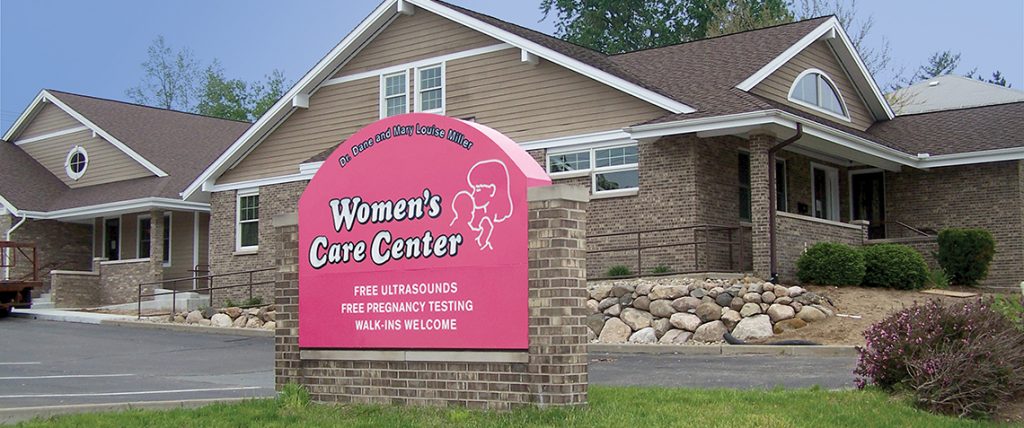
With their model of both unconditional love and practical support, Women’s Care Centers support women in 11 states who are experiencing a crisis pregnancy. When a woman feels loved and supported, she is more likely to view herself as capable of doing a difficult thing like carrying to term an unexpected baby, said diocesan Marriage and Family Ministry Director Lisa Everett.
The effort to protect unborn life is also buoyed by the fundraising efforts of another Catholic network with a great love for pro-life efforts: Diocese of Fort Wayne-South Bend Knights of Columbus councils. The councils’ understanding that viewing their babies in the womb tends to change mothers’ hearts is why the councils have funded a dozen ultrasound machines for pro-life organizations in the area.
“That has been a game-changer,” said Everett. “Once a woman actually sees her baby, that life that is growing inside her, upwards of 95% choose life for that baby.”
Right to Life Michiana was founded in 1972 as state pro-abortion legislation was about to be expanded and Roe v. Wade was in the process of being decided. From around the kitchen table of a South Bend couple in 1972, the desire to offer women in crisis pregnancies options that preserve the life of their child has flourished. In 2019, RTLM then developed HerMichiana.org, an online directory of pregnancy-related resources including medical care, substance abuse, legal aid, employment assistance and childcare.
In 1984, University of Notre Dame professor Janet Smith was volunteering outside the South Bend abortion clinic, endeavoring to dissuade women from entering the facility. She thought, “‘What if there was a place to refer these young women to support and help them – not just say ‘don’t do this,’ but also provide the support they would need to carry their babies to term,’” said Everett.
Smith and her husband purchased the house next door to the clinic, and together with Ann Manion, who remains involved with WCC and is its current president, the inaugural location of Women’s Care Center was established.

HerMichiana, a website launched in 2019 by Right to Life Michiana, is the most recent effort of the single-minded, South Bend pro-life organization to encourage women in crisis pregnancies to carry their babies to term. Right to Life Michiana has been supporting women who choose life for their babies since 1972.
Right to Life Michiana’s mission of education and advocacy dovetails with that of Women’s Care Center, which today welcomes women in 33 locations in 12 states. That welcome is key; operating under Catholic principles, the centers are intentionally designed with a priority of hospitality, creating a low-pressure environment in which to present women of all faiths or no faith with information about their pregnancy and the developing child. There is also reassurance in the form of tangible help: free pregnancy tests, prenatal care, baby supplies and job and relationship counseling are available.
According to Everett, who was among the first WCC volunteer counselors, the model is really one of providing unconditional love.
“Women loved how they have been treated there. Their dignity is respected: It’s a nonjudgmental approach in the sense that they are always loved and helped to see that they can do the tough thing, which might be having a baby in less-than-ideal circumstances. They can do that with the support of various services in the community and the the counselors and staff members at the Women’s Care Centers. When a woman feels loved and supported, she is more likely to view herself as capable of doing a difficult thing, like carrying to term an unexpected baby.”
In 1982 a counterpart to Right to Life Michiana began to form on the other side of the diocese. What came to be called Northeast Indiana Right to Life immediately began similar work as its sister organization in South Bend, advocating for all stages of human life and referring women in crisis pregnancies to Women’s Care Centers and other pregnancy centers in the area.
Residential support and friends to lean on
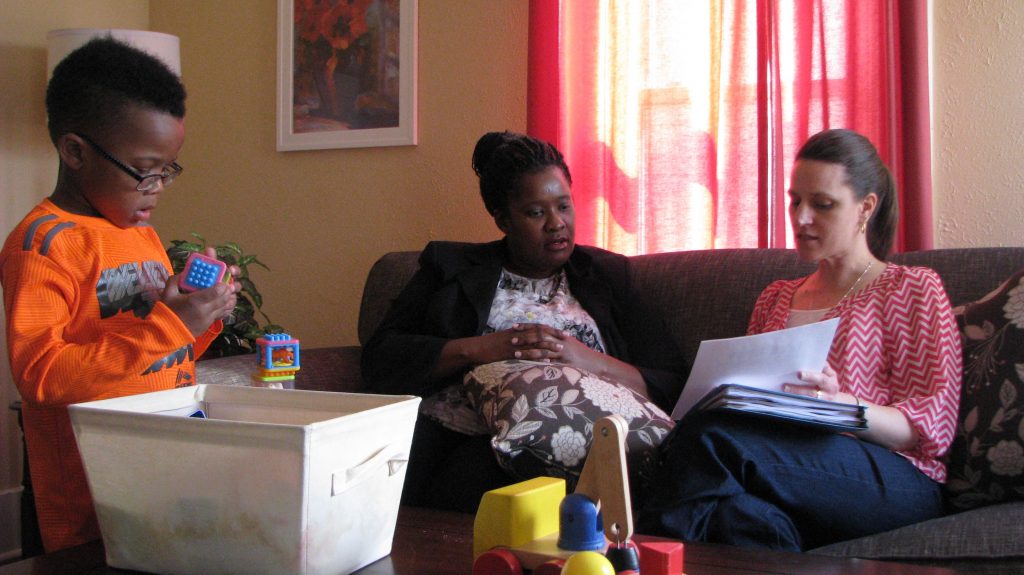
Hannah’s House in Mishawaka offers residential support to single mothers, giving them not only a place to live during their pregnancy but also assistance with job skills, employment searches, health and wellness checkups, accompaniment during delivery and more.
Over time, the residential options for women also expanded. Hannah’s House in Mishawaka, originally a partnership of the Diocese of Fort Wayne-South Bend, Bethel College, Saint Joseph Community Hospital and Women’s Care Center, opened in 1993 and continues today. It was joined in 2018 by the similarly missioned A Mother’s Hope home in Fort Wayne.
Building on online resources like those offered by Right to Life Michiana, a 2020 initiative of the U.S. Conference of Catholic Bishops brought support for pregnant women to a wider and even more local audience. Parishes in the Diocese of Fort Wayne-South Bend have implemented Walking with Moms in Need, an effort to gather the immediate resources of parishes and their surrounding communities and present them to women faced with a crisis pregnancy. A directory of parishes and their WWMIN resources is on the diocesan website at walkingwithmomsfwsb.com/.
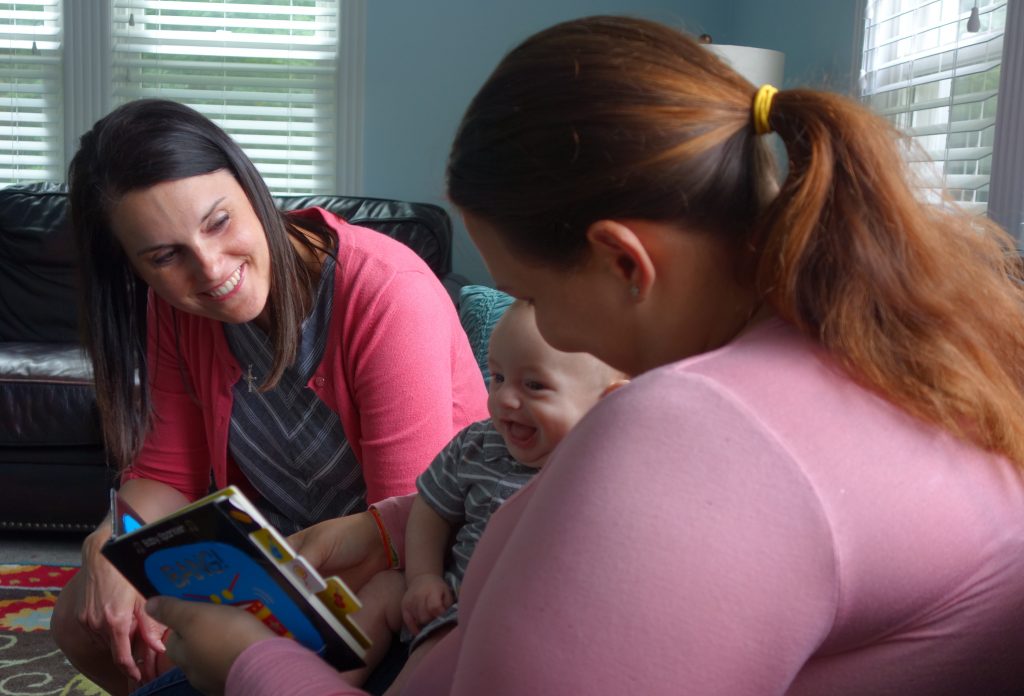
A Mother’s Hope in Fort Wayne offers residential support to single mothers, giving them not only a place to live during their pregnancy but also assistance with job skills, employment searches, health and wellness checkups, accompaniment during delivery and more.
“Walking with Moms in Need was an effort to involve parishes in a more intentional way in making sure anyone in the parish knew where to refer a pregnant woman in need,” said Everett. Parishes are inventorying the resources available in their immediate areas and working to make the faithful aware of them so they can assist in making those resources better known. Any gaps in resources – including spiritual and emotional support, rides to appointments or even a baby shower — are encouraged to be filled through parish efforts and awareness.
Importantly, information about Walking with Moms in Need can also be accessed outside the parish by anyone who visits the website.
“We want to make everyone capable of letting mothers in crisis know they are not alone, that there is help to support them in making a life-affirming choice for their baby,” said Everett. “There is so much help available to them.”
The best news. Delivered to your inbox.
Subscribe to our mailing list today.






